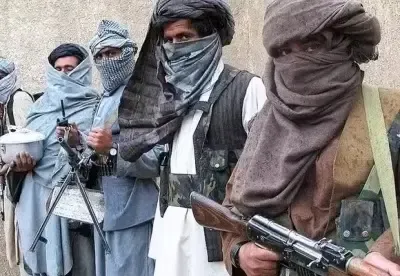Unprecedented Surge in Militancy: A Deadly Ramadan in Pakistan

Synopsis
Key Takeaways
- 84 militant attacks reported during Ramadan 2025.
- Significant increase from 26 attacks in 2024.
- Pakistani Taliban ended ceasefire, escalating violence.
- Baloch Liberation Army conducted sophisticated attacks.
- Intelligence failures contributed to rising incidents.
New Delhi, March 31 (NationPress) This year's (2025) Ramadan witnessed an alarming increase in militant violence in Pakistan, recording the highest incidence of attacks in the past decade. This information was unveiled in a recent report published by a think tank on Monday.
Notably, militant groups that had previously maintained ceasefires during Ramadan resumed their attacks on civilians throughout this sacred month. Consequently, the nation experienced a consistent rise in violence, with extremist factions persisting in their aggressive campaigns.
The Pak Institute for Peace Studies (PIPS) reported a “worrying uptick in militant activity, documenting a total of 84 attacks during the month of Ramadan,” which concluded on Sunday. This figure represented a substantial increase from the previous year's count of 26 attacks during the same period.
A key factor driving this escalation in violence is the Pakistani Taliban, which terminated a ceasefire with the government in November 2022. Nevertheless, the Tehreek-e-Taliban Pakistan (TTP), commonly referred to as the Pakistani Taliban, declared a three-day ceasefire on March 29, coinciding with Eid-ul-Fitr.
Moreover, the Baloch Liberation Army (BLA) has strengthened its operations, increasingly executing complex attacks across the nation.
A particularly vicious event occurred on March 11, when the BLA seized a train in the southwestern province of Balochistan, leading to at least 25 deaths.
Another think tank, the Pakistan Institute for Conflict and Security Studies, recorded 61 militant attacks in the first three weeks of Ramadan, a slight rise from the 60 attacks noted during the same period last year. This Ramadan has been the deadliest in a decade for security forces, with 56 fatalities reported between March 2 and March 20, as per the institute’s findings.
Experts attribute the rise in violence to a general escalation in militant actions, including the unification of various factions. They note that Baloch militant groups are collaborating more closely. Additionally, factions like the Hafiz Gul Bahadur group have become increasingly lethal, even challenging the Pakistani Taliban in certain areas.
The resurgence of banned groups such as Lashkar-e-Islam, operating from the northwest province of Khyber Pakhtunkhwa, also contributes to the surge in militant attacks. Pakistan has long accused the Taliban-led government in neighboring Afghanistan of sheltering these militant factions, although Kabul has consistently denied such allegations. Nevertheless, the revival of these groups raises alarms about the potential spillover of militancy from Afghanistan into Pakistan.
Simultaneously, intelligence oversights have been identified as a factor in the rising violence. It has been reported that inadequate intelligence inputs contributed to the recent train hijacking.
In the broader context, security and strategic affairs analysts indicate that conditions in other Islamic nations are also concerning. This Ramadan saw a total of 254 Islamic militant attacks across 20 countries, resulting in 2,007 deaths and 626 injuries, according to a report. Pakistan now ranks higher than Afghanistan, Somalia, and Syria on global terrorism indices, emphasizing the severity of the situation and the persistent challenges the country encounters in combating extremism.










